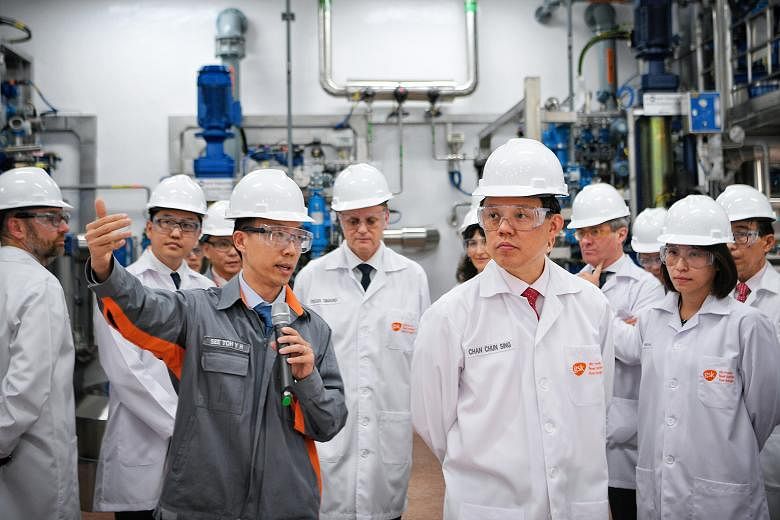Fitch Solutions Macro Research yesterday said Singapore's pharmaceutical industry is becoming an "increasingly important" component of the country's manufacturing sector.
This is apparent from the growth in employment and fixed asset investments in the industry, in contrast to overall decreases in the manufacturing sector as a whole.
Last year, Singapore exported US$7.49 billion (S$10.21 billion) worth of pharmaceuticals to leading destinations Switzerland, the Netherlands and Japan. As an entrepot, Singapore re-exports some of its imports which include pharmaceuticals.
Data from Enterprise Singapore and Fitch Solutions showed that Singapore's pharmaceutical exports and imports had been on a steady rise in the past three years, with the Republic being one of the few countries in the world with a positive pharmaceutical trade balance.
But the change in monthly pharmaceutical exports from Singapore can be volatile, subject to changes in manufacturing outputs from new batches of active ingredients coming online, or products losing their patent protection leading to a fall in demand.
Quoting data from the Economic Development Board, Fitch said the number of people working for pharmaceutical companies rose to 7,356 in 2017, from 5,142 in 2011, and this contrasts with the overall decrease in employment seen in manufacturing.
Similarly, while the value of fixed asset investments fell for most industries, the pharmaceutical sector saw a total of $440 million invested in 2017, up from $197 million in 2012. There are 55 pharmaceutical manufacturing facilities in Singapore, a majority of which are foreign-owned and includes research and development-based companies.
-
$10.21b
Last year, Singapore exported $10.21 billion worth of pharmaceuticals to leading destinations Switzerland, the Netherlands and Japan.
-
7,356
The number of people working for pharmaceutical companies in 2017, up from 5,142 in 2011.
Most recently, pharmaceutical giant GlaxoSmithKline unveiled a fully automated continuous manufacturing facility and an expanded production building at its Jurong site earlier this month.
The new $130 million plant enables the continuous manufacturing of Daprodustat, which is in phase III trials for the treatment of anaemia associated with chronic kidney disease.
The increasing importance of the pharmaceutical sector is also due to the Singapore Government's long-term ambition of developing innovative pharmaceuticals, Fitch said.
This was seen from the formation of the Experimental Drug Development Centre (EDDC) last month, which integrated the Agency for Science, Technology and Research's (A*Star) drug discovery and development units.
"It is hoped that EDDC can better coordinate public-private partnerships in Singapore's drug development ecosystem, and allow industry partners greater ability to translate discoveries into new medicines," Fitch added.
Fitch Solutions is part of Fitch Group, which also owns Fitch Ratings. Their research and commentary are independent of each other.
Correction note: This article has been edited for clarity.

